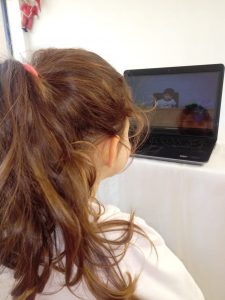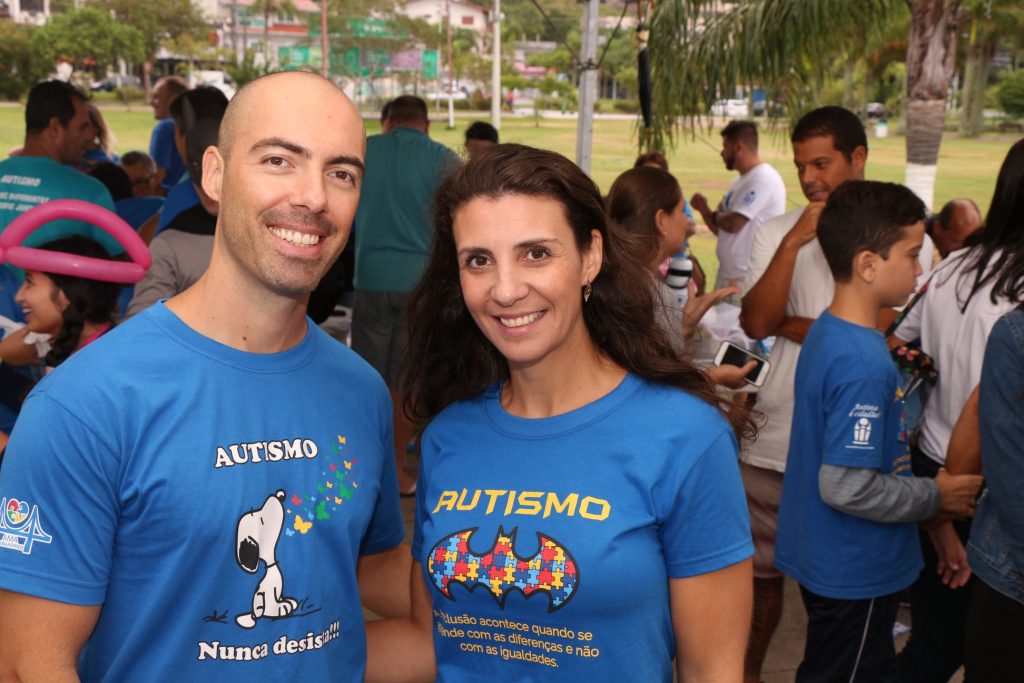São Paulo – Brazilian startup company Cognisigns developed a software program that can diagnose autism in children and adults. Established in Florianópolis (SC) a year and a half ago by neuroscientist Leandro Mattos and psychologist Andressa Roveda (pictured above), Cognisigns intends to map out autistic people in Brazil and the world over before they even show up at the doctor’s office.
The project won the TIP Summit 2020 (Technology Innovation Pioneers) last February in Abu Dhabi. Out of 4,000 entrants, five startups won each of the categories – Healthcare, Environment and Energy. Cognisigns placed in the top 5 in Healthcare, got a cash prize and is planning to implement the software in the UAE. It’s also set to open an office in Abu Dhabi in the first half of this year.

ANBA spoke with Leandro Mattos, who discussed the software program and the TIP Summit, which is hosted by the UAE Ministry of Economy.
Mattos said global awareness of autism spectrum disorder is fairly low at this time. According to the World Health Organization (WHO), 1% to 2% of the world’s population are autistic (data from 2010). “If 1% are autistic, there are 2 million autistic people in Brazil, but only 3,000 are diagnosed as such. That’s 0.15%, which means that 99.85% are unaware. We want to reach out to these people, because if they aren’t diagnosed, they won’t seek medical help,” he explained.
According to him, the first part of the software is an easy-to-answer multiple-choice survey, which changes according to the respondent’s answers. In case any autistic tendencies are detected, respondents are directed to the second part of the program – an eye scan using the computer camera.
“You can do it all online. These are international surveys. We got them translated into English and Arabic, and eye behavior is not culture- or language-dependent, so it doesn’t require translation. Once they get this diagnosis, respondents can seek a physician to undergo adequate treatment and social inclusion,” he explained.
The eye scan involves visual stimuli, like a videogame that prompts reactions, and the reactions enable the diagnosis. “What we’re trying to do is kind of like a newborn bloodspot test for autism. If we succeed in doing this global scan, we’ll be able to help with population triage, making the technology available to families and physicians,” he said.
The survey part is free of charge; the eye scan part costs BRL 250 (USD 54). According to Mattos, the target demographic is families, companies and governments. “Parents’ purchases are quicker; companies are in the middle of the road, and those are our target right now – the B2B segment; governments take a long time to purchase, but we’re working on that too,” he said.
When it comes to the Brazilian government, for instance, the software could triage public healthcare system patients into priority levels. Patients diagnosed as autistic would get urgent priority. “The government doesn’t need more hospitals to treat autism. All it needs is maybe to sort out patients better. That would mean lower costs for government. We’ve done tests at municipal schools in Florianópolis,” he said.
The software has already helped many families, children and adults in Brazil. There are plans to reach remote areas with a lack of medical care. “We’re helping autistic people’s parents, kids and physicians. We’ll identify and follow up with these people, and the diagnosis leads to inclusion and awareness. That’s what moves us. That’s our currency – more than the financial and operational aspects, which every company needs. When you see it happen, it’s a very unique, rewarding thing,” he said.
The TIP Summit
Cognisigns is working on its UAE operations. “Our intention is to become a Brazilian-Arab company. The TIP Summit was like our passport to the UAE. We just went in for the awards, and now we’re looking for an Arab partner. We’re seeking out a partnership,” said Mattos, who intends to have the office up and running in the first half of this year.
According to him, there’s a possibility of getting incubated in the UAE. Cognisigns is currently incubated under Florianópolis’ Miditec, the fifth biggest incubator in the world. “The feeling I get from the Arab world is that they’re very committed to technologies designed to assist minorities,” he said.
Translated by Gabriel Pomerancblum




